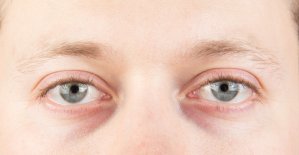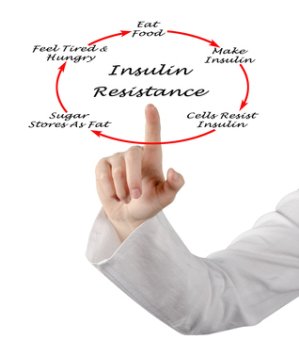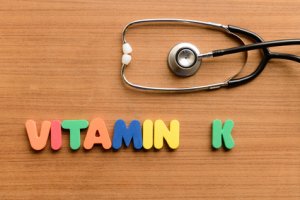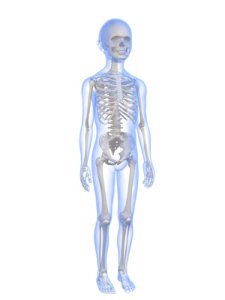Can vitamin B3 help prevent melanoma and regular skin cancer?
 A new study shows that vitamin B3 has the potential to prevent skin cancer and melanoma, which is the most dangerous type of skin cancer. Apparently, vitamin B3 can boost the body’s repair of DNA damage caused by UV radiation from the sun or sunbeds.
A new study shows that vitamin B3 has the potential to prevent skin cancer and melanoma, which is the most dangerous type of skin cancer. Apparently, vitamin B3 can boost the body’s repair of DNA damage caused by UV radiation from the sun or sunbeds.
Read more about how vitamin B3 helps prevent melanoma and regular skin cancer
- Created on .












 According to a study from Ohio State University, Columbus, USA, people suffering from dry eyes may find relief by consuming more oily fish or taking a fish oil supplement.
According to a study from Ohio State University, Columbus, USA, people suffering from dry eyes may find relief by consuming more oily fish or taking a fish oil supplement.
 The brain normally only uses blood sugar in the form of glucose. However, people suffering from insulin resistance have impaired cellular uptake of blood sugar, causing an energy shortage of the brain. According to a recent Israeli study, insulin resistance may speed up impairment of the cognitive functions that include the ability to think, speak, and solve problems. Because insulin resistance is an early stage of type-2 diabetes that spreads like an epidemic, there is every reason in the world to start preventing or treating this condition. A few dietary adjustments combined with a blood sugar-regulating trace element may do the trick.
The brain normally only uses blood sugar in the form of glucose. However, people suffering from insulin resistance have impaired cellular uptake of blood sugar, causing an energy shortage of the brain. According to a recent Israeli study, insulin resistance may speed up impairment of the cognitive functions that include the ability to think, speak, and solve problems. Because insulin resistance is an early stage of type-2 diabetes that spreads like an epidemic, there is every reason in the world to start preventing or treating this condition. A few dietary adjustments combined with a blood sugar-regulating trace element may do the trick. Approximately one in seven couple is childless. Although there can be many underlying causes, poor sperm quality is an increasing problem. It may be caused by a lack of certain nutrients and exposure to different environmental factors, but, fortunately, it possible to improve sperm quality and increase the chances of conception by means of relevant dietary adjustments and the use of specific supplements. New research shows that epigenetic factors (factors that affect the environment of the sperm cell) determine sperm health and are therefore crucial for activating the genes of the sperm cell so the fetus can develop.
Approximately one in seven couple is childless. Although there can be many underlying causes, poor sperm quality is an increasing problem. It may be caused by a lack of certain nutrients and exposure to different environmental factors, but, fortunately, it possible to improve sperm quality and increase the chances of conception by means of relevant dietary adjustments and the use of specific supplements. New research shows that epigenetic factors (factors that affect the environment of the sperm cell) determine sperm health and are therefore crucial for activating the genes of the sperm cell so the fetus can develop. Many older people sleep poorly and tend to have elevated blood pressure. Luckily, supplementation with melatonin seems to correct both problems. Melatonin can even improve sleep in people who take beta-blockers for high blood pressure. So what is melatonin, and why is this substance particularly useful for older people?
Many older people sleep poorly and tend to have elevated blood pressure. Luckily, supplementation with melatonin seems to correct both problems. Melatonin can even improve sleep in people who take beta-blockers for high blood pressure. So what is melatonin, and why is this substance particularly useful for older people?
 We consume far too much sugar from candy, soft beverages or in the form of concealed sugar in our food. This impairs the body’s uptake and utilization of
We consume far too much sugar from candy, soft beverages or in the form of concealed sugar in our food. This impairs the body’s uptake and utilization of 
 In May 2017, new data linking
In May 2017, new data linking  For decades, medical science has claimed that
For decades, medical science has claimed that  "After about one week of taking the Q10 supplement I could feel a huge difference," says 23-year old Alan Piccini, who has been suffering from extreme fatigue and muscle aches ever since he was a child.
"After about one week of taking the Q10 supplement I could feel a huge difference," says 23-year old Alan Piccini, who has been suffering from extreme fatigue and muscle aches ever since he was a child. “Taking capsules with co-enzyme Q10 has freed me of the severe side effects of my cholesterol lowering medicine,” Mrs Franken explains.
“Taking capsules with co-enzyme Q10 has freed me of the severe side effects of my cholesterol lowering medicine,” Mrs Franken explains.